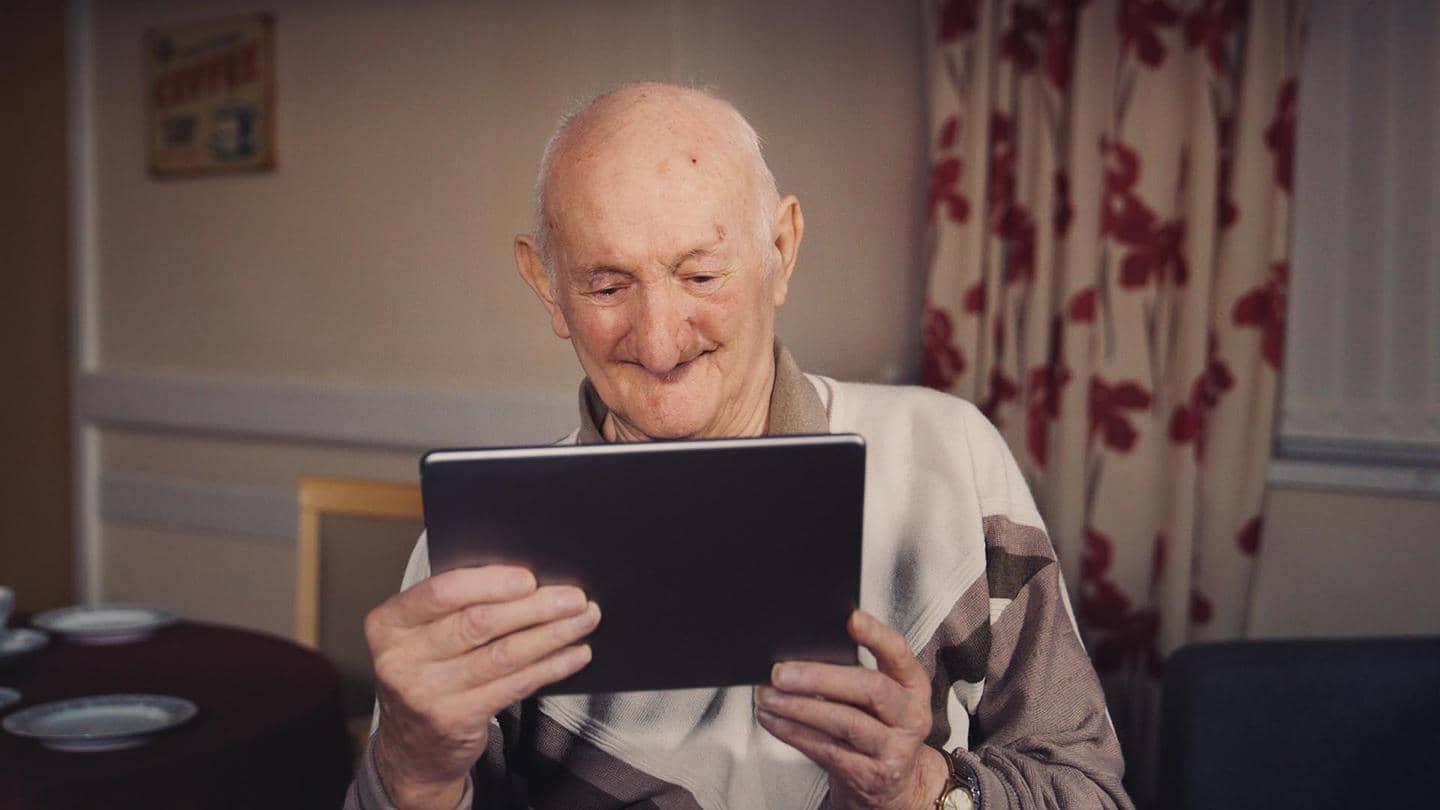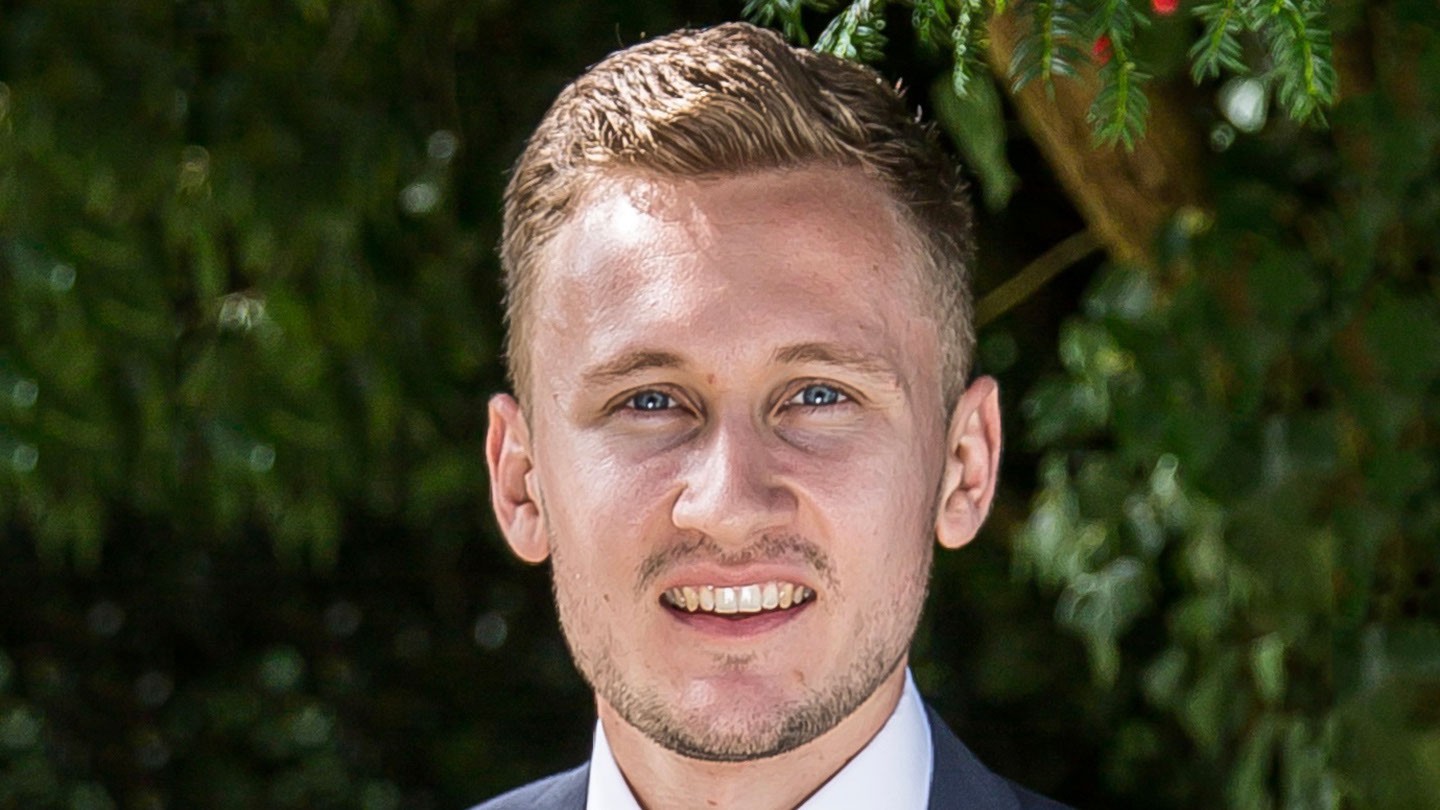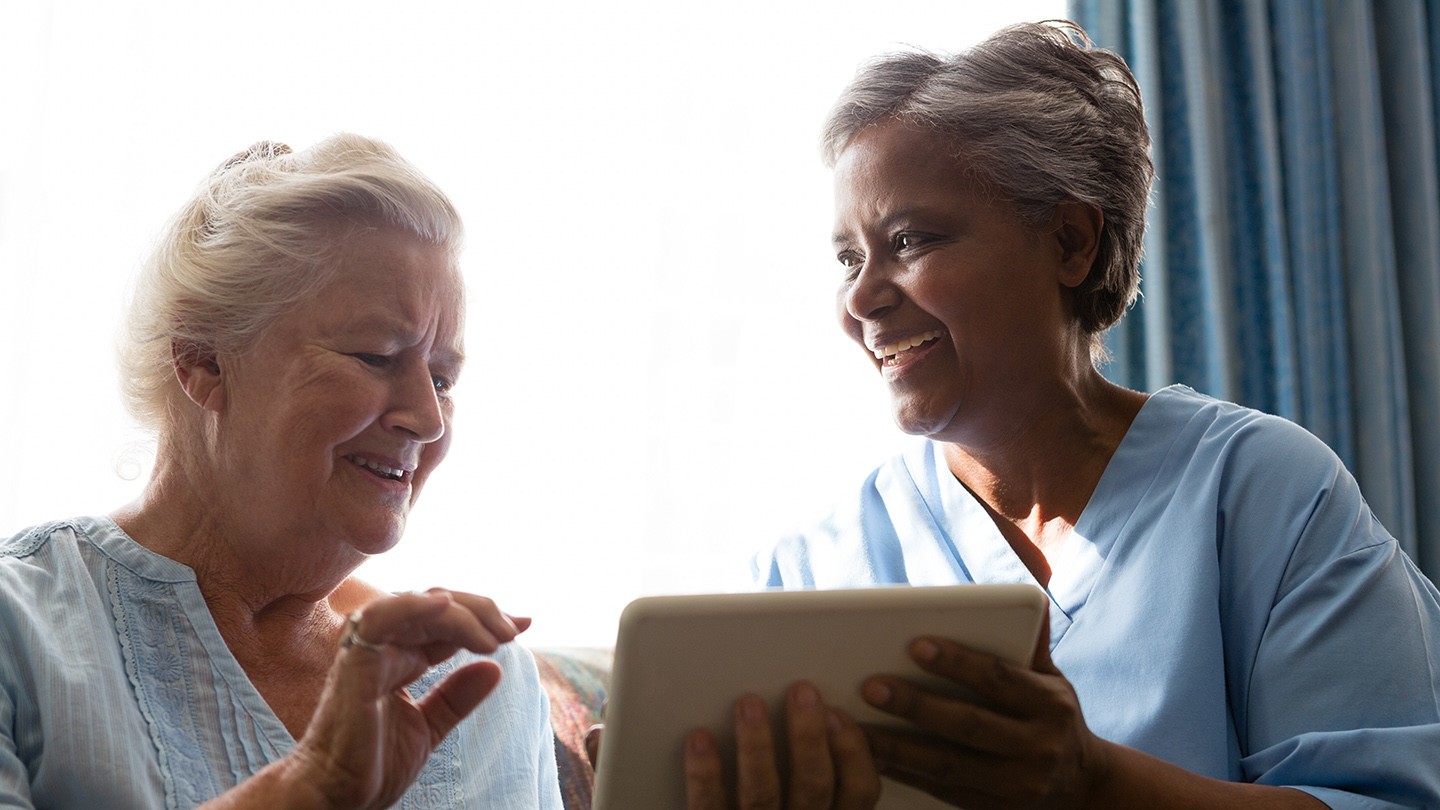
Impact
“To be able to see my family is absolutely fabulous"
Being digitally connected has been vital to staying in touch with loved ones and accessing services during the pandemic, but around five million older people in the UK today are not online. We hear how Barclays Digital Eagles are helping thousands of care home residents to stay connected with family and friends.
Flora is one of thousands of people living in care homes in the UK who have stayed connected to family and friends during the pandemic – thanks to Barclays’ Digital Eagles programme, which aims to help people of all ages “get the most out of digital”.
“To be able to see [my family] is absolutely fabulous,” Flora says. “Modern technology does always amaze me.” She says she also uses the tablet for online appointments with her GP, to stream the music she loves, and to look at pictures of the orchard where she used to live.
Les (pictured above), another resident helped by the programme, also uses his new digital skills to have regular calls with his family – and keep an eye on them through social media. “I’m more than a bit nosey,” he says. “I’m a lot nosey.” He says the video chats are “lovely, because whenever you’re in company, you can be sure of a laugh. It’s part of family life.”
Digital Eagles is a national network of Barclays colleagues who provide digital skills training and support to local communities. When the pandemic hit in early 2020, the network launched a new programme to help care home residents like Flora and Les – and their carers – to learn digital skills.
Mark Cossons, External Digital Eagle Relationship Manager at Barclays, explains the programme’s aims: “To connect care home residents to their friends and families because they weren't allowed to go visit them anymore – and to help care workers understand the process of virtual doctor appointments.”
He continues: “It very quickly expanded. By the end of June, we had trained residents and carers in 100 homes in the space of two months – and we realised the size and scale of what we were doing. It took off to a different level after that.”
By the end of June, we had trained residents and carers in 100 homes in the space of two months – and we realised the size and scale of what we were doing.
Barclays External Digital Eagle Relationship Manager

Mark Cossons says the pandemic has highlighted the UK’s digital divide.
In 2020, the Digital Eagles exceeded its commitment to help 500 care homes – and the programme is continuing to grow, says Cossons. “Close to 1,500 people have been trained by now in care homes. Because of the knock-on effect of our trainings, we’ve helped about 10,000 people with digital skills directly or indirectly. The fact that we’ve done that in six to nine months, completely from scratch and with a 92% satisfaction rating, is probably the biggest achievement.
We’re now in the process of building out the programme again, with a minimum aspiration of helping 5,000 care homes this year.”
Supporting wellbeing
While keeping in touch with family, friends and caregivers is vitally important, the digital skills gained are also about making life richer in other ways for residents and staff. “We focus on entertainment to bring social value to the care home, helping residents download apps, YouTube, virtual tours of Buckingham Palace, virtual choir sessions – anything you can think of,” Cossons says. “We also focus on the care workers’ platforms, like Microsoft Teams, Zoom and the virtual doctor’s appointment process.”
The programme is helping residents overcome isolation and loneliness – while also easing some of the strain the pandemic has placed on care workers, he says: “One resident, who is around 83 years old, has a sister who lives in Australia, and they got to FaceTime each other for the first time in years. That's probably the best part of it – the support that we're giving. You naturally see it straight away, the impact that it's having.

Barclays Digital Eagles hope to support 5,000 care homes this year.
We hope to continue expanding at the pace that we are, with the target to help 5,000 care homes in the UK this year. The ultimate idea is to support the digital transformation of the entire health and social care sector.
Barclays External Digital Eagle Relationship Manager
“The skills that we're delivering allow them to stay connected, which I think is the most important thing. And the ability to connect with a doctor if they need it is not only helping the wellbeing of the residents, but it's saving time, it's saving money – and the knock-on effect that has for the NHS is positive as well.”
He adds: “Carers and care workers we take for granted – massively. We don’t realise that they are flat-out constantly working. They do not stop.”
Helping thousands of people to get online
The pandemic has illuminated the reality of the UK’s digital divide, which the Digital Eagles will continue working to bridge beyond COVID-19, says Cossons.
“We're in a space where you realise how important digital is,” he explains. “A lot of people out there lack digital skills – not just within the care sector but amongst the wider general public.”
He continues: “Look at children who are now in home schooling. There are kids missing out on education because they haven't got devices to be able to dial in virtually.” To support children and their parents through home schooling, Barclays expanded its Code Playground initiative online. The programme, which teaches the basics of coding, reached 101,000 children in 2020.
“We're helping bridge that gap within the care sector as well, and it has had a massive impact,” says Cossons.
Fuelled by this success, Barclays Digital Eagles plan to bring services to even more people in need in the future. “We hope to expand the programme beyond care homes,” Cossons says, “to mental health centres, learning and disability homes, crisis centres – and then even further to general practitioners for the wider general public.
“In the immediate term, we hope to continue expanding at the pace that we are, with the target to help 5,000 care homes in the UK this year. The ultimate idea is to support the digital transformation of the entire health and social care sector.”